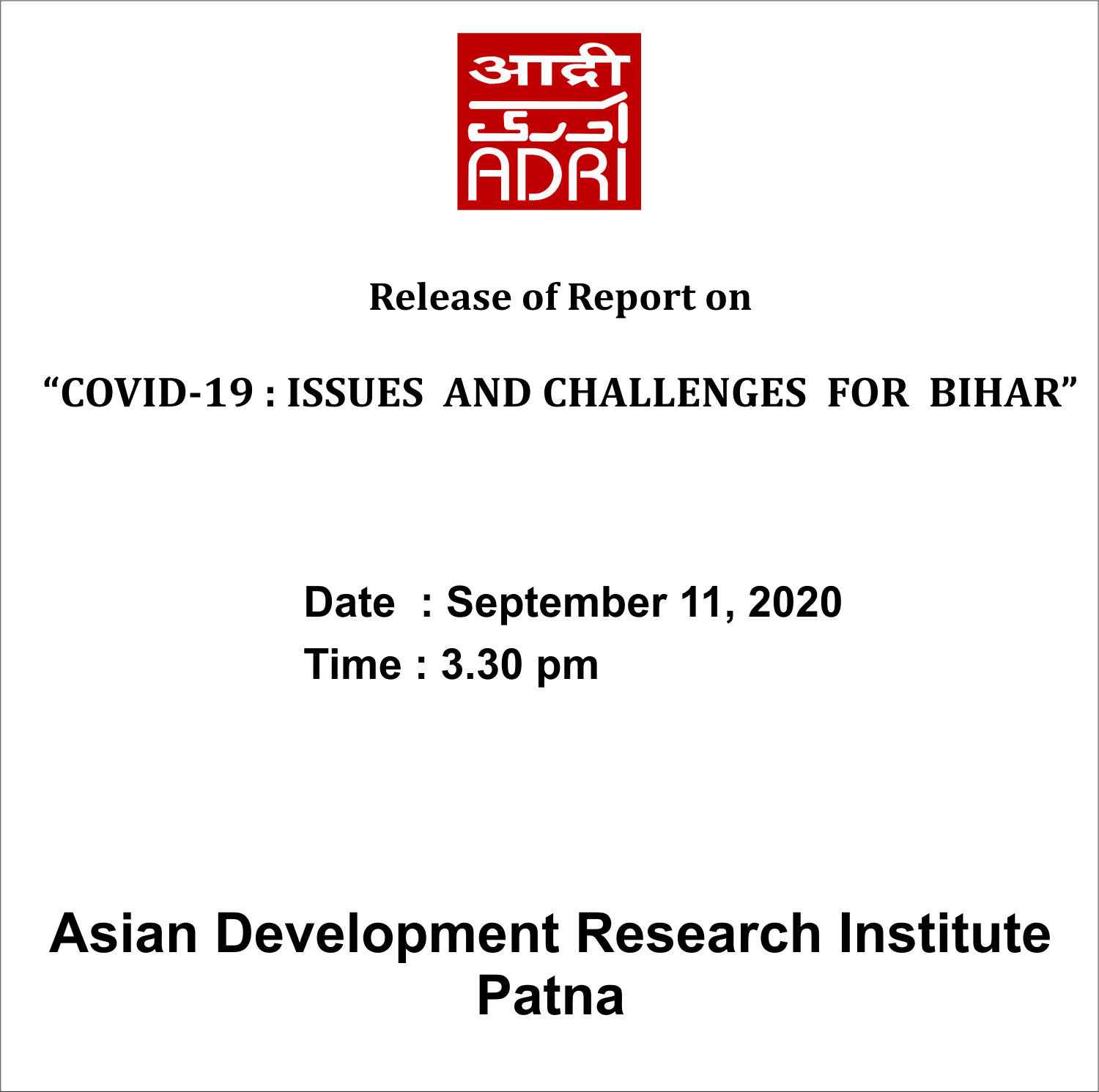Events of ADRI Patna

“Covid-19: Challenges Galore for both the Government and People”
Patna, 11 September. The pandemic caused by the spread of Covid-19 has affected not only the lives and livelihood of the people, but has severally affected the Government finances. The challenges before the people and the state Government in Bihar were widely discussed by Dr Prabhat P Ghosh and Dr Sudhanshu Kumar on the occasion of the release of the report ‘COVID-19: Issues and Challenges for Bihar’ at the Asian Development Research Institute (ADRI), Patna. The report is an outcome of comprehensive deliberations among the researchers at the institute on the challenges of the Covid-19 pandemic and its impact on the Bihar economy.
It was highlighted in the report that the crisis is first of its kind for India, as the country had not faced any such pandemic before and hence it has tested the preparedness of the health system, bureaucracy and the overall policy-making of the Governments at the Centre and the State. The challenges before the economy are also unique this time as an economic crisis is caused by the health crisis. It is quite likely that the disruption of the productive activities in Bihar for a reasonably long period may lead to the extinction of some tiny-scale production activities, which account for a large number of production units in a poor economy like Bihar. This will imply a permanent loss of the productive capacity of the Bihar economy. In the case of Bihar, the public investment accounts for a major part of total investment and this component will decrease substantially in 2020-21, as the state finances will be much stressed due to the crisis. The resulting negative overall growth rate of Bihar economy under reasonable assumptions will be approximately between minus 15.0 to 18.2 per cent. The negative impact of COVID-19 on Bihar economy may be relatively less than India as a whole (23.9 percent in the first quarter of FY 2020-21), but in absolute terms, the impact is substantial. Therefore, the State Government needs to adopt several strategies to overcome the challenges.
Given the limited revenue receipt from its sources, the State Government in Bihar has been heavily dependent on the central transfers and the grants for resources, which was 77.6 per cent in the year 2018-19. Hence the significant reduction in the revenue collection of the Central Government will affect the state finances badly and therefore Bihar needs to explore the possibility to generate more revenue from its own sources also. It was noted that the growth of the State depends heavily on increasing the fiscal capacity of the state government to do meaningful expenditure. This is also needed to boost the existing health infrastructure in the State.
The lockdown imposed after the outbreak of Covid-19 has affected the informal workforce, which is approximately 94 percent of the workforce in Bihar. Also, there was a huge inflow of the migrants during the initial phase of lockdown. MGNREGA, a demand-based employment programme, proved to be an effective short-term relief measure for providing employment, especially for the rural and unskilled workforce. The state government took many short-term measures to handle the crisis however, much more needs to be done to mitigate the impact in the medium to long term.
The crisis has also given an opportunity to revisit the functioning of lower-level bureaucracy for efficient implementation of the government policies. Among all the challenges, fortunately, the fatality rate due to the pandemic in Bihar has remained lower than many of the states in the country. The report, organised in seven chapters, presents many points on various aspects of the Bihar economy, like impact and challenges for health, education, labour, women, children, elderly and the state finances, for further deliberation by the interested readers including researchers and policymakers. The researchers at the ADRI, Patna was also part of the event.